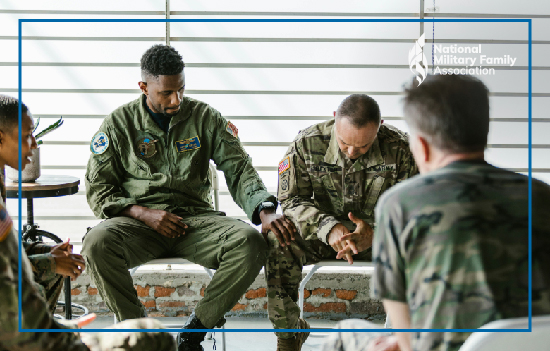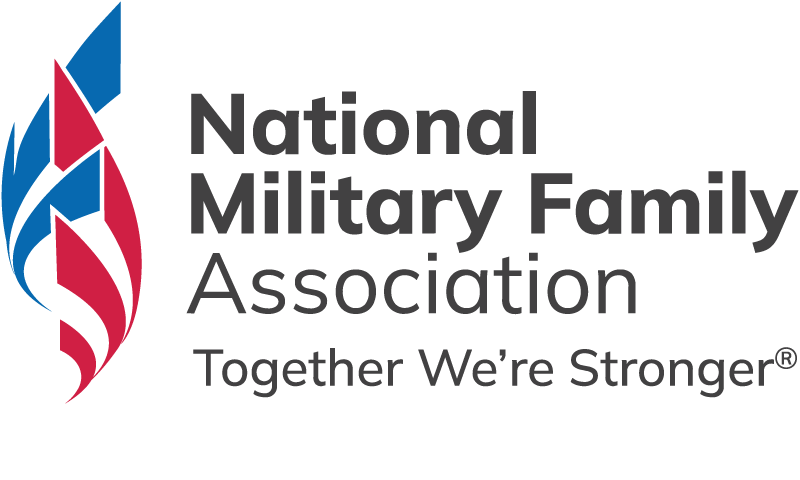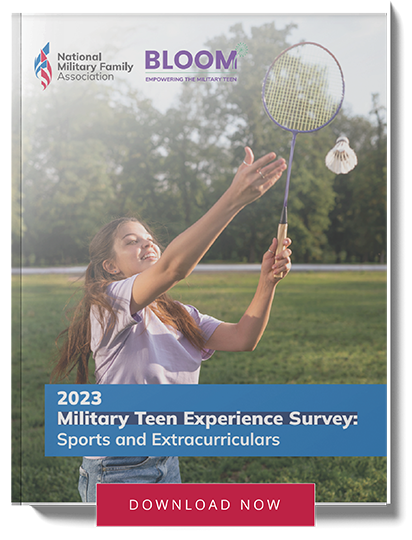PTSD and the Military Family: How to Find Connection and Healing

Since 2014, the month of June has been designated as post-traumatic stress disorder (PTSD) Awareness Month. It serves as a reminder of those suffering from PTSD and how it impacts individuals, families, and communities. At NMFA, we talk about the hard stuff that comes with the military journey and strive to identify and solve these unique challenges.
To support and hold space for military families experiencing PTSD and share current tools, we spoke with a practicing clinical mental health counselor who is also a veteran and military spouse.
PTSD and the Military Community
Alicia Snell has experienced two sides of the coin when it comes to PTSD and the military family—a personal factor that makes her work more meaningful and easily relatable to others.
“When I was deployed as a Surface Warfare Officer off the coast of Africa, one of my shipmates died by suicide. That experience—and the ripples of pain and helplessness that followed—shaped how I understand trauma,” Alicia shared. “Later, as a military spouse, I saw a different side of PTSD. The quieter, more hidden ways it impacts family life.
These lived experiences serve as a starting point for her when meeting clients and ensuring all feelings are valid when talking about PTSD.
“One of the biggest misconceptions about PTSD—especially within the military—is tied to our collective misunderstanding of what trauma actually is,” Alicia explained. “Clinically, PTSD is linked to exposure to actual or threatened death, serious injury, or sexual violence, whether someone experienced it directly or was exposed in some way. But trauma doesn’t always come from combat. It doesn’t need to fit a dramatic mold to be valid.”
When every military family member feels their voices are heard and their feelings validated, it opens the doors to healthy communication and healing.
“Trauma can stem from a host of wounds, and the military community sometimes struggles to make space for other types of trauma,” Alicia said. “When we educate people about trauma and help them understand their responses, we create a pathway for healing. Conversation creates connection, and connection helps prevent people from getting stuck in the cycles that lead to persistent symptoms.”
Seeking professional care and recognizing PTSD as a possible source of everyday challenges can greatly influence healing, even more so when supported by loved ones.
Support Loved Ones Through Hard Times
The support of loved ones can make any form of therapy a positive and empowering experience.
“I encourage loved ones to stay curious and compassionate. You may not understand the triggers, and the reactions might feel irrational or confusing, but try not to assume,” she advised. “Ask questions. Invite conversation. Hold space without judgment. And just as important, honor where your loved one is on their journey. If they aren’t ready to talk, that’s okay. Let them know the door is open.”
The U.S. Department of Veterans Affairs reported that more than 8 million people in the United States currently have PTSD. It is an alarming statistic, and one that doesn’t factor in the number of caregivers who are deeply impacted. Alicia emphasized this is why the support of the entire family is crucial, urging loved ones to recognize and embrace their roles as integral to the healing journey.
“Sometimes, the most powerful thing you can do is simply stay—stay present, stay patient, and stay open to connection, even when it’s messy,” Alicia shared. “Remember, your wellbeing matters just as much. You can’t pour from an empty cup. Caring for someone with PTSD takes a lot of strength—and that strength comes from taking care of yourself, too.”
Together We’re Stronger
PTSD is a heavy topic, but as Alicia and many others remind us, it doesn’t have to be carried alone. Whether you’re personally navigating PTSD or supporting a loved one who is, your voice, your feelings, and your healing matter deeply.
NMFA stands ready to support your military family in this journey, providing resources, understanding, and a safe space to connect. This June, let’s shine a light on PTSD, normalize the conversation, and strengthen our community—because together, we truly are stronger.
By: Angela Sablan Tenorio, Content Manager





